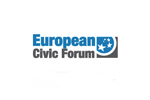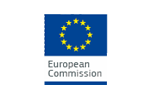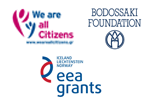The CRAFTWISE project develops an innovative apprenticeship model that promotes knowledge exchange between generations, connecting design students with craft professionals. Its aims are to preserve traditional crafts, integrate digital tools and business skills, and strengthen youth employability and entrepreneurship. The model can be expanded and adapted, reinforcing cross-sector collaboration across Europe.
The project will run for three years and includes targeted training and apprenticeship interventions that empower young people and craft professionals through hands-on practice, technological familiarisation, and business skills development. Key activities include the C-Skills action—a mapping study of stakeholders, training needs, and skills gaps that will inform the content of the Collaborative Apprenticeship Programme (CAP); the design and implementation of the CAP, a four-module programme covering theory, craft technical skills, introduction to technological solutions, and business development, with pilots in partner countries; as well as horizontal dissemination and project management activities.
CRAFTWISE aims to develop and implement an innovative apprenticeship model that fosters intergenerational knowledge transfer by linking young design students with craft professionals. By combining traditional techniques with contemporary design, digital tools, and business strategies, the project ensures that craftsmanship remains economically viable, culturally relevant, and attractive to future generations. Specifically, CRAFTWISE develops a four-module CAP with standardised training materials and a facilitator’s guide; maps needs and skills gaps in the sector and produces the C-Skills Report as the evidence base for training; strengthens participants’ digital and entrepreneurial competences (e.g., tools, e-commerce, branding) while nurturing viable venture ideas; and pilots and evaluates the model across multiple countries with a view to scaling, cross-sector collaboration, and long-term sustainability.
Target groups include design-oriented young people (18–25), craft professionals (as mentors and/or trainees), and, more broadly, young people and youth workers active in non-formal learning and the creative economy.
Expected results include the C-Skills Report with skill-gap analysis and recommendations; a fully developed and tested CAP with standardised training materials and a facilitator’s/coach’s guide; and evidence of improved craft, digital, and entrepreneurial skills among participants—contributing to enhanced cross-sector collaboration, sustainability, and scalability of the model.
Partners: Innovation Education Lab (coordinator), ANCE, Puhu Arastirma ve Danismanlik Ltd. Sti., FORMACION PARA EL DESARROLLO E INSERCION, SOCIEDAD LIMITADA, Mad'in Europe SRL







